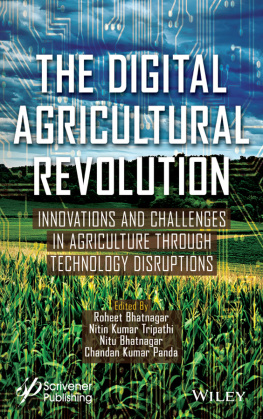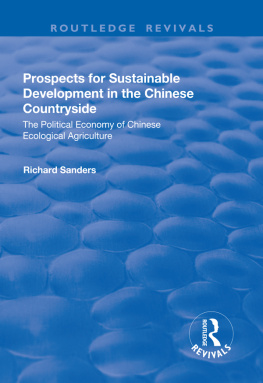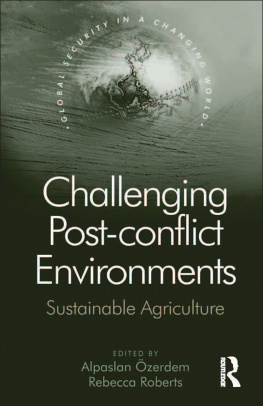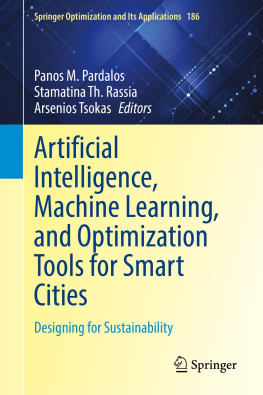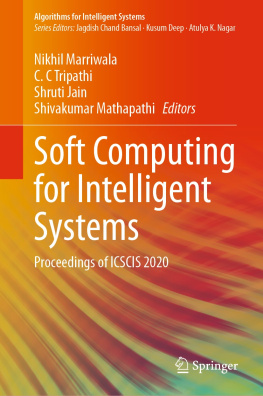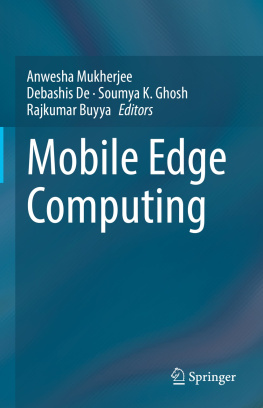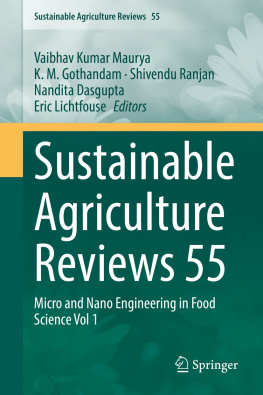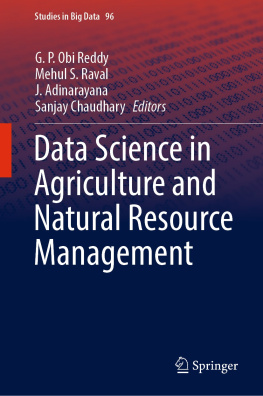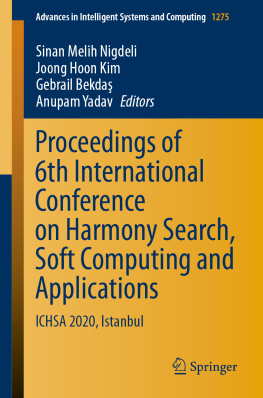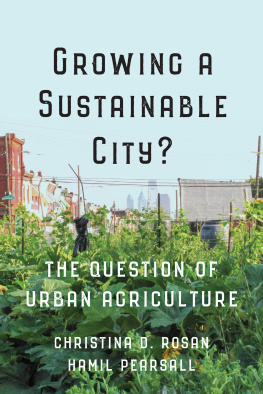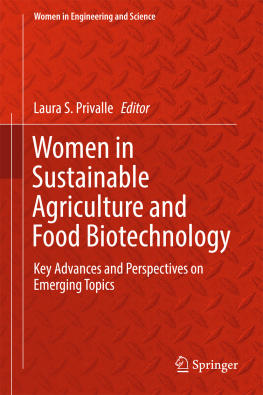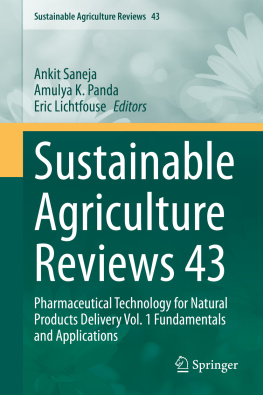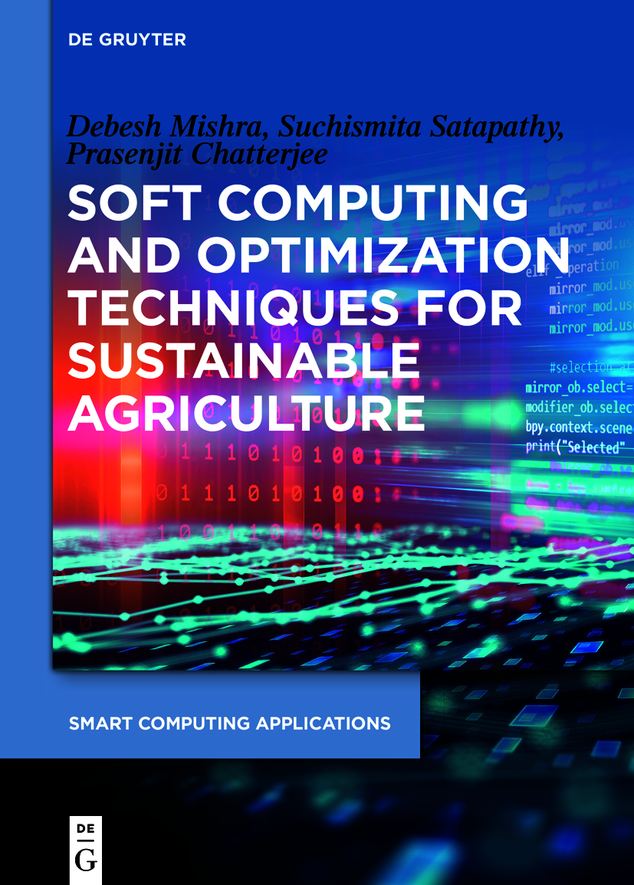Smart Computing Applications
Edited by
Prasenjit Chatterjee
Dilbagh Panchal
Dragan Pamucar
Sharfaraz Ashemkhani Zolfani
Volume
ISBN 9783110744958
e-ISBN (PDF) 9783110745368
e-ISBN (EPUB) 9783110745375
Bibliographic information published by the Deutsche Nationalbibliothek
The Deutsche Nationalbibliothek lists this publication in the Deutsche Nationalbibliografie; detailed bibliographic data are available on the Internet at http://dnb.dnb.de.
2022 Walter de Gruyter GmbH, Berlin/Boston
Debesh Mishra, Suchismita Satapathy, Dr. Prasenjit Chatterjee
Soft Computing and Optimization Techniques for Sustainable Agriculture
De Gruyter Series on Smart Computing Applications

Edited by Prasenjit Chatterjee, Dilbagh Panchal, Dragan Pamucar, Sarfaraz Hashemkhani Zolfani
Volume 4
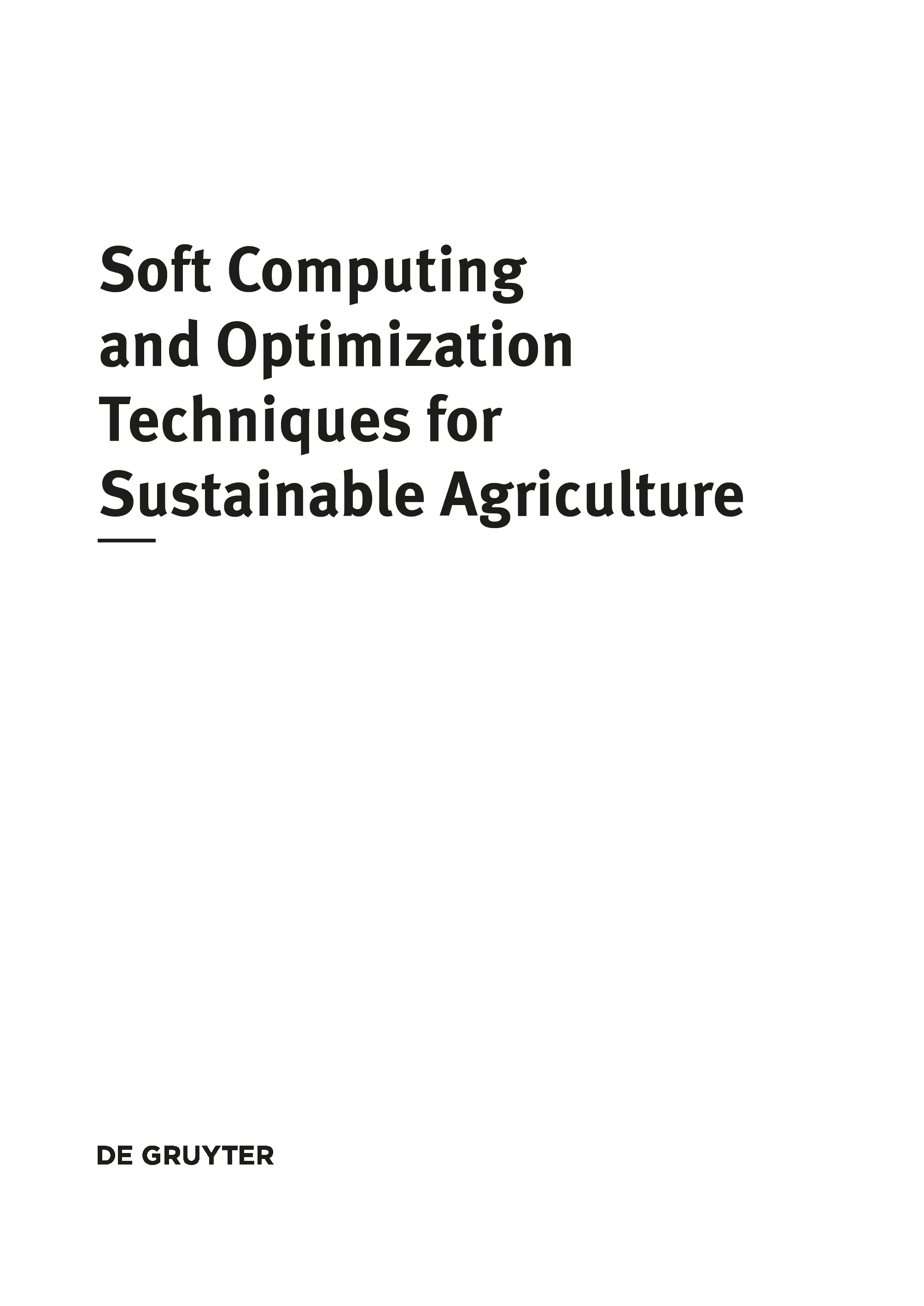
Soft Computing and Optimization Techniques for Sustainable Agriculture
Authors
Dr. Suchismita Satapathy
KIIT Deemed to be University
KIIT Road
Odisha-751024
India
Dr. Debesh Mishra
KIIT Deemed to be University
KIIT Road
Odisha-751024
India
Dr. Prasenjit Chatterjee
MCKV Institute of Engineering
Department of Mechanical Engineering
243 G. T. Road North
Howrah Liluah-711204
India
ISBN 978-3-11-074495-8
e-ISBN (PDF) 978-3-11-074536-8
e-ISBN (EPUB) 978-3-11-074537-5
ISSN 2700-6239
Library of Congress Control Number: 2021952316
Bibliographic information published by the Deutsche Nationalbibliothek
The Deutsche Nationalbibliothek lists this publication in the Deutsche Nationalbibliografie; detailed
bibliographic data are available on the Internet at http://dnb.dnb.de.
2022 Walter de Gruyter GmbH, Berlin/Boston
Cover image: monsitj / iStock / Getty Images Plus
Printing and binding: CPI books GmbH, Leck
www.degruyter.com
Acknowledgements
I would like to take this opportunity to acknowledge a great many people who have contributed directly or indirectly to compile this book. I am very thankful and grateful to those people who have made this book possible. Further, my sincere gratitude and appreciation to my family members for their wholehearted support and encouragement, without which, I would not have been able to complete this professionally enriching and personally satisfying journey.
Debesh Mishra, PhD
I would like to deeply thank my publisher for giving me an opportunity to publish my content. Our publishers have also helped me a lot by taking precious time to help me carry out my experiments and encouraged me to complete my work accurately within the time I was given to do so. They have been a guiding force with encouragement to perform my work. I would like to thank my husband, Pravudatta Mishra, for encouraging me to complete my book project. My daughter, Meghana, also helped me a lot by giving me relaxation from some of her valuable family time. I would like to express my thanks to my father, Dr. R. B. Satapathy, and my mother, B. P. Mishra, my in-laws, Dr. S. N. Mishra and late Dr. B. M. Mishra, who has inspired me to work on this book. KIIT authority Prof. (Dr.) A. Samant is always an inspiration for me in achieving my goal. My colleagues, friends of KIIT, as well as my students all have equally encouraged me. At last, I would like to thank and owe my contribution before almighty God for invisible help.
Suchismita Satapathy, PhD
I express my sincere gratitude to the publisher and co-authors who have devoted their time and effort to make this highly comprehensive book possible.
Prasenjit Chatterjee, PhD
Preface
Agriculture plays an important role in developing countries and has become the backbone of their economic level. However, the findings of agricultural data have proven to be more useful for multiple purposes, and the farmers also need accurate suggestion for forecasting of the yield and farm-related productivity. For agricultural management, the emerging expert systems have been useful tools in providing integrated, area-specific, and interpreted prediction or forecasting and guidance in every aspect in agriculture. However, in order to achieve a sustainable agriculture, there is a need for an effective and useful application of these expert systems at optimum levels. Moreover, the use of soft-computing methods has been shown to have the ability to solve non-linear problems without mathematical models and the introduction of human knowledge, including cognition; confession; better understanding; and computer training that can create intelligent system. The use of soft-computing technology enables to model and analyze very complex-problems, while traditional methods cannot provide complete and inexpensive analytical solutions for such problems. Therefore, this intended book aims at covering all emerging global aspects in agriculture including the risks and opportunities available, the existing ergonomic risks, and effective management of agricultural activities through the applications of different computational and optimization techniques in order to achieve a sustainable agriculture.
This book is comprised of seven chapters. concludes the book while focusing on the benefits of soft-computing techniques. The utilization of soft-computing techniques in agriculture-based analysis in addition to latest machineries with the aid of Artificial Intelligence (AI) and/or Internet of Things (IoT) is recommended to be more beneficial to worldwide agricultural-systems.
Abbreviations
AA: Agent-Architectures
AHP: Analytic Hierarchical-Process
AI: Artificial Intelligence
ANFIS: Adaptive Neural-Fuzzy Inference System
ANN: Artificial Neural-Network
ANP: Analytic Network-Process
ARIMA: Auto-Regressive Integrated Moving-Average
BSO: Brain-Storm Optimization
BT: Boosted-regression Tree
CFD: Computational Fluid Dynamics
DE: Differential-Evolution
EC: Evolutionary-Computing
ECI2: Economical-Impacts
EDAS: Evaluation based-on Distance from Average-Solution
ELM: Extreme Learning-Machine
ENVI3: Environmental-Impacts
EP: Evolutionary-Programming
FA: Firefly-Algorithm
FAO: Food and Agriculture Organization
FFS: Farmer Field Schools
FIS: Fuzzy-Inference System
FL: Fuzzy Logic
FMEA: Failure Mode and Effect Analysis
GA: Genetic Algorithm
GARCH: Generalized Auto-Regressive Conditional Hetroskedastic
GDP: Gross Domestic-Product
GEP: Gene-Expression Programming
GIS: Geographical Information-System
HPSO-GA: Hybrid Particle-Swarm Optimization and Genetic-Algorithms
HypoMgT: Hypomagnesaemic tetany
ICT: Information and Communication Technologies
IoT: Internet of Things
ISSA: International Social Security Association
MARS: Multivariate Adaptive-Regression Spline
MCDA: Multi-Criteria Decision-Analysis
MCDM: Multi-Criteria Decision-Making
MIMO: Multi Input and Output
MSDs: Musculoskeletal Disorders
MT/Year: Million-Tonnes/Year
MT: Model-Tree


